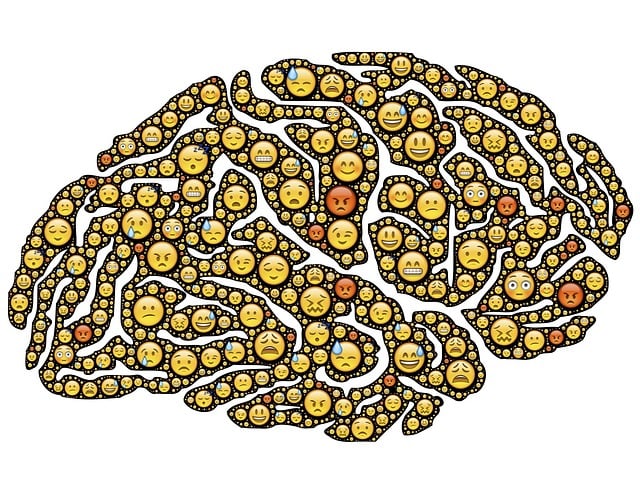Cultural sensitivity is crucial for effective treatment of Denver postpartum depression (PPD), addressing unique challenges through personalized interventions that respect diverse backgrounds. Mental health professionals must integrate cultural understanding, self-care, and stress management workshops to create inclusive environments. This approach ensures tailored support, improves patient outcomes, and strengthens therapeutic alliances in Denver PPD therapy.
Cultural sensitivity is an essential aspect of mental healthcare, ensuring effective treatment and improved outcomes. This article explores the concept of cultural competence and its profound impact on practices like Denver postpartum depression therapy. We delve into strategies for healthcare professionals to navigate diverse patient backgrounds, fostering inclusive care. Understanding cultural nuances can revolutionize mental health support, making it accessible and tailored to individuals’ unique needs, especially in addressing specific challenges like postpartum depression in diverse communities.
- Understanding Cultural Sensitivity in Mental Healthcare
- The Impact of Cultural Competence on Denver Postpartum Depression Therapy
- Strategies for Practicing Culturally Sensitive Care in Mental Health Settings
Understanding Cultural Sensitivity in Mental Healthcare

Cultural sensitivity in mental healthcare is a vital aspect that often determines the effectiveness of treatment. It involves recognizing and appreciating the diverse cultural backgrounds, beliefs, and practices of individuals seeking therapy. In Denver, where a melting pot of cultures coexists, understanding these nuances is crucial for addressing specific mental health challenges like postpartum depression, which may manifest differently across various ethnic groups.
Integrating self-care routine development for better mental health, compassion cultivation practices, and stress management workshops can significantly enhance cultural sensitivity in therapy. Healthcare professionals in Denver can foster inclusive environments by incorporating these strategies. Such approaches not only support individuals’ mental well-being but also encourage open communication, helping therapists to tailor their interventions while respecting clients’ cultural identities. This personalized approach ensures that everyone receives the best possible care.
The Impact of Cultural Competence on Denver Postpartum Depression Therapy

Cultural sensitivity is a cornerstone in the effective treatment of Denver postpartum depression (PPD). The diverse nature of modern society demands that mental health professionals be equipped to address the unique needs and challenges faced by patients from various cultural backgrounds. Inadequate cultural competence can lead to misdiagnoses, inappropriate treatments, and patient disengagement, exacerbating symptoms of PPD. For instance, certain cultural beliefs around motherhood, gender roles, and emotional expression might differ significantly from mainstream norms, requiring therapists to adapt their approaches accordingly.
Integrating cultural sensitivity into Denver PPD therapy involves proactive risk management planning for mental health professionals. This includes staying informed about diverse cultural practices, integrating self-care practices to prevent burnout, and employing evidence-based interventions that are culturally adaptable. By fostering an inclusive environment and utilizing strategies such as active listening, translators, and cultural resources, therapists can create a safe space for patients to openly discuss their experiences. Such initiatives not only enhance the quality of care but also contribute to improved patient outcomes and stronger therapeutic alliances in the context of Denver PPD therapy.
Strategies for Practicing Culturally Sensitive Care in Mental Health Settings

In mental healthcare settings, practicing culturally sensitive care is essential to ensure that all patients receive effective and respectful treatment. The first step involves actively listening to and understanding a patient’s cultural background, beliefs, and experiences. This can be facilitated through open-ended questions during intake, encouraging patients to share their unique perspectives on health, illness, and healing. Additionally, healthcare providers should be knowledgeable about the specific mental health challenges within diverse communities, such as postpartum depression among new mothers in Denver. Tailoring therapy approaches to align with a patient’s cultural frame of reference can significantly improve treatment outcomes.
Promoting culturally sensitive care also involves creating an inclusive environment. This includes ensuring that materials and information are available in multiple languages and that staff members represent the diverse communities they serve. Encouraging patients to engage in self-care routine development for better mental health can be a powerful tool, as it empowers individuals to take an active role in their healing journey. Moreover, developing public awareness campaigns on depression prevention can help reduce stigma and encourage early intervention among diverse populations.
Cultural sensitivity in mental healthcare is not just a best practice, but an essential component of effective treatment. As demonstrated by studies like those on Denver Postpartum Depression Therapy, cultural competence significantly improves patient outcomes and satisfaction. By adopting strategies that foster culturally sensitive care, mental health professionals can create inclusive environments that honor diverse backgrounds, values, and beliefs. This approach ensures that every individual receives personalized support, leading to better mental well-being and stronger therapeutic alliances.














